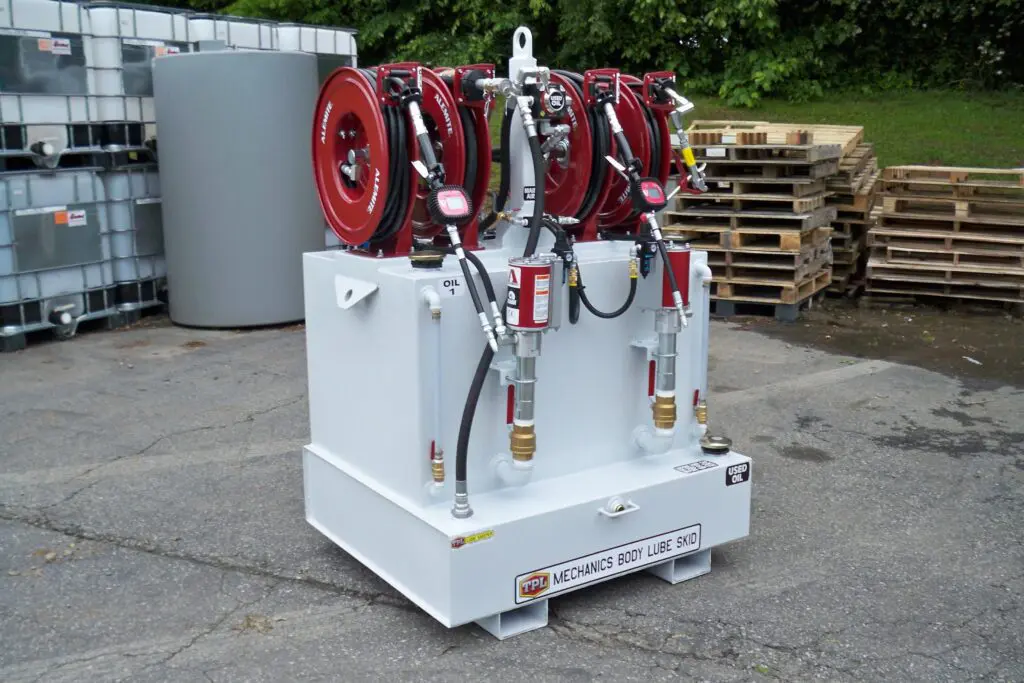What Is A Lube Skid and Some Of Its Benefits
A lube skid is a mobile piece of lubrication equipment utilized in a work environment that can be used to top off greases, oils and fluids for vehicles or machinery. In addition, they contain waste oil storage tanks. Since they are self-contained, lube skids also reduce the need for oil storage lockers, barrels, and containers – which are traditionally difficult to maintain and keep tracking on.
Advantages
Since lube skid are stand alone and self-contained, auxiliary equipment such as air compressors and generators can be mounted on them to run additional tools, like drills and welders. Once again, this reduces the need to inventory and track extra equipment on a work site and allows the business or organization to be more efficient in their core activities.
Another tremendous benefit is lube skids are not lube trucks. While this may sound elementary, lets take a closer look: They are much cheaper to purchase than trucks. They do not have a chassis and require less insurance to cover than a truck platform containing the same equipment.
5-Year Warranty
Here at Taylor Pump and Lift, all of our lube equipment is engineered with the highest standards and quality. That is why back our products with a 5 year warranty to give you an even better piece of mind when you purchase with us.
Functionality
Our lube skids can be easily moved from one truck to another and location-to-location. For example, one day they can service heavy equipment; and fleet vehicles the following day.
The TPL Difference
At TPL, our custom build process includes sitting down with our customers and analyzing their business needs before any work begins, ensuring they get exactly what they need – and nothing they don’t!
Want to learn more? Need a custom skid built to meet your business needs and budget? Call us today, or fill out the the form on our Contact page!

